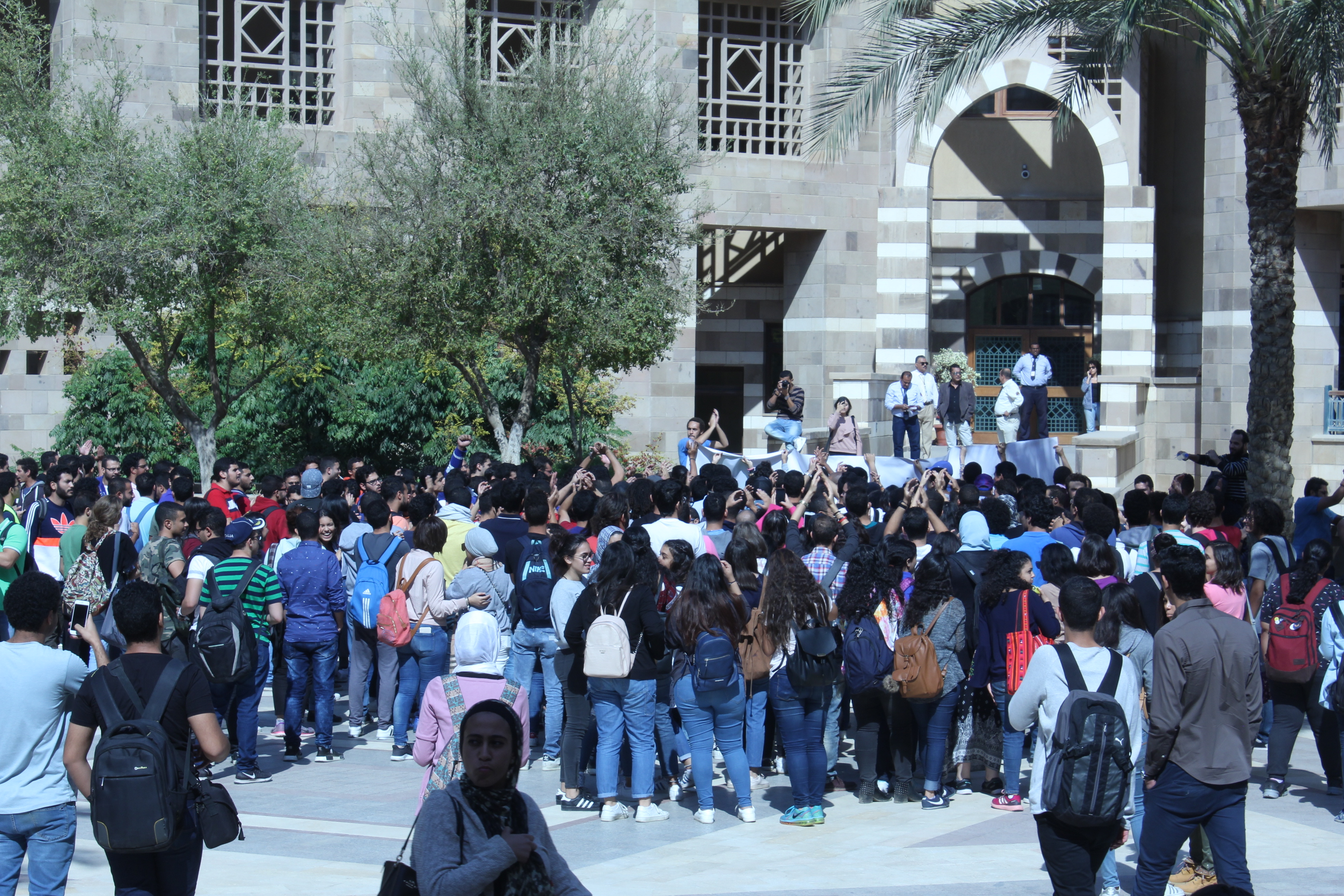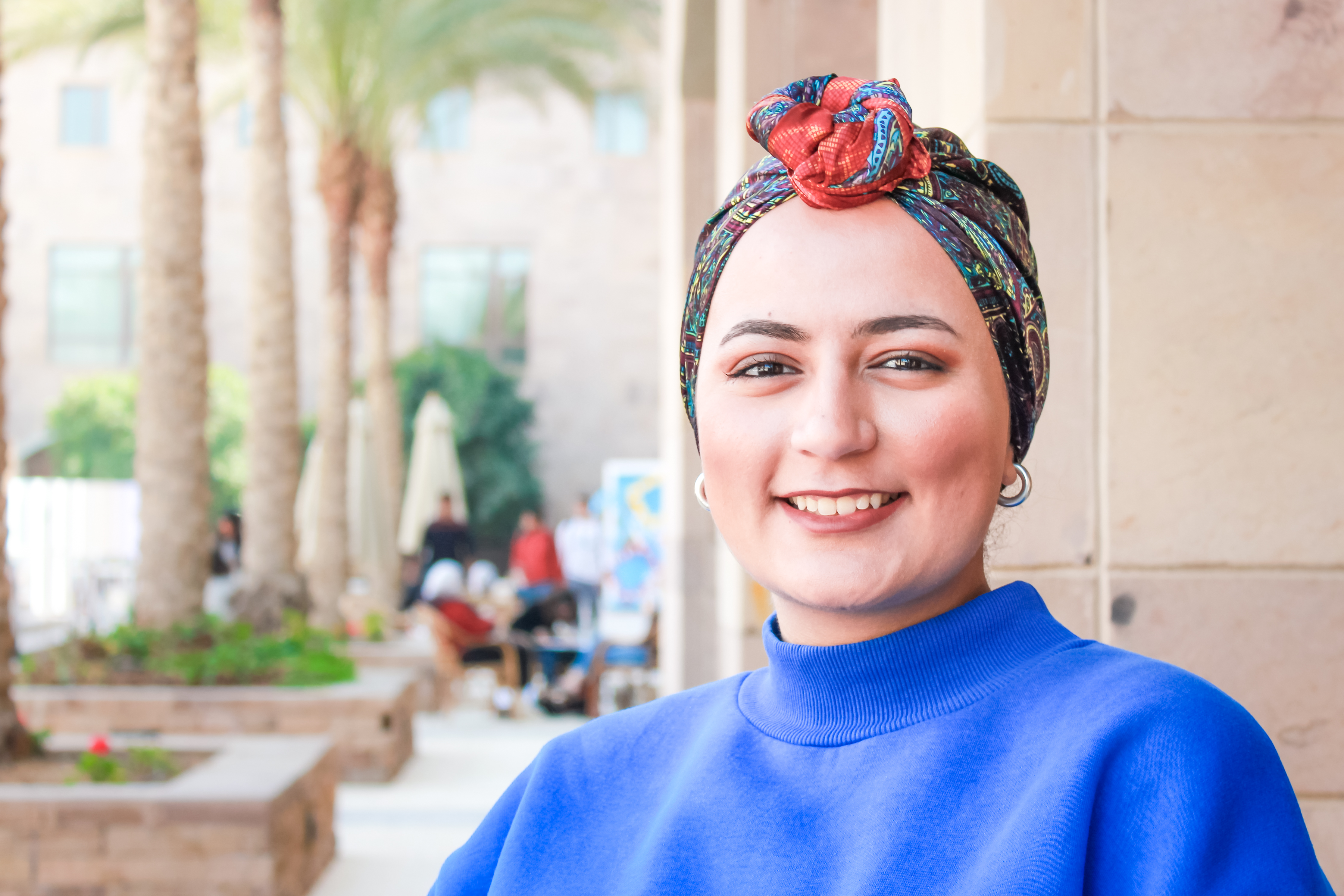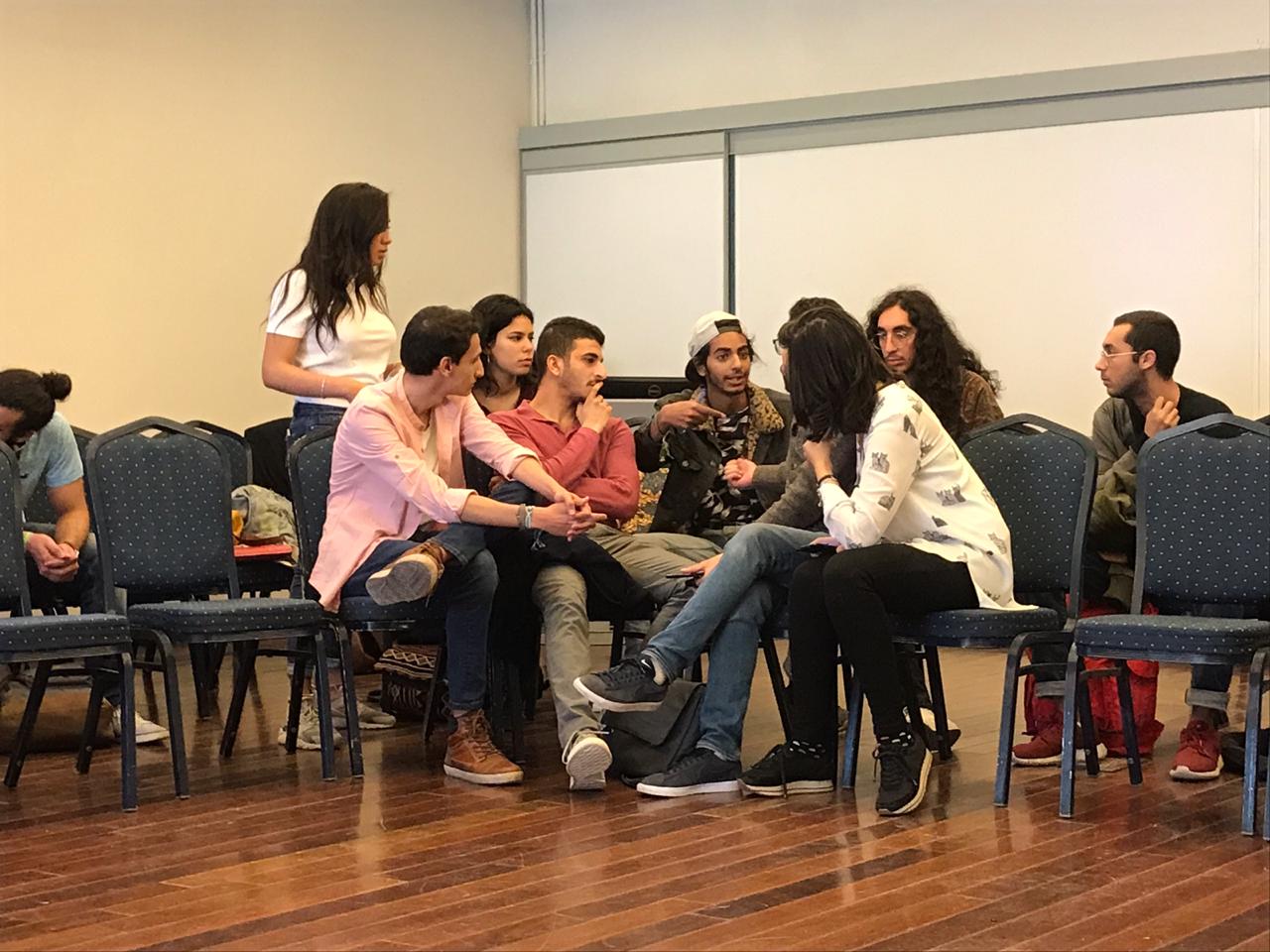Students Seek More Political Advocacy From Future Unions
By Dania Akkawi
Follow @daniaakkawi
The Student Union (SU) has over the past year struggled with an increasing number of student concerns, ranging from objections to new university regulations, such as the Campus Access, Smoking, and ID Policies, to calls for shared governance.
A recent debate on social media focused on ways the SU could best represent student interests and negotiate with the administration, while continuing to provide essential goods, services and entertainment.
Current Chair of Communications at the SU Ahmed Sharawy believes that the Union is always focused on all functions simultaneously.
“It just so happens that there are times when political representation is dominant and times when entertainment is dominant,” he said.
A Caravan poll of 117 students revealed that 35.5 percent believed the SU was performing its mandate well.
Students were also asked to rate the SU’s overall performance on a scale ranging from poor to excellent. Twenty-two percent said SU performance was fair, while 11.2 percent that it was poor.
“Honestly, they’re not bad, but they could do a lot more to provide facilities to students and help them gain their rights,” Accounting Sophomore Omar Hesham told The Caravan.
Former and current SU members who spoke to The Caravan revealed that there has been an ongoing internal discussion about where to best direct funds and resources.
“Although representation is the main aspect the SU should focus on, it does not mean that other committees are of less importance,” said current Associate Chair of Representation Omar Atef.
Student Senator for the History department Dona Emam recently polled students on the Rate AUC Professors Facebook page whether the SU should focus on representation or entertainment.
Of the 432 students, 314 – or 73 percent – said political representation should carry more weight. Ninety-four – or 22 percent – said that both aspects should be given equal importance.
“AUC’s SU doesn’t fit into my own definition of an SU because I feel like ours is invested in entertainment, events and public relations,” said Emam.
SU’s former Academic Representation Chair Omar Bahaa explained that academic and political representation need to work in parallel to best represent the interests of the students.
“When the SU started in 1928, it started with only the academic representation committee. The second committee was services. Is representation the main aspect? Yes,” he said.
“This does not mean that the focus should only be representation. There still has to be [a focus on] services. There still has to be entertainment. Because this is still a way to pressure the administration.”
During the Fall 2016 student strike when the SU asked students to boycott campus facilities as a way to protest the spike in tuition fees, campus food vendors were immediately impacted and told the administration that they were losing money.
“This is a way that services become an asset to representation. For instance, live streaming matches during the strike. It brings people and keeps them entertained,” Bahaa added.
But in some years and under different administrations, the SU struggles to maintain the balance between entertainment and representation.
“The Union is always trying to balance between entertainment and representation but what happens is that oftentimes, one is prioritized over the other,” said Ahmed Amer, former Student Senate speaker.
Nevertheless, the SU is not without its successes, says SU Vice President Ahmed Gazar.
One of the SU’s biggest milestones is ensuring that over 1,300 students received financial aid despite missing University deadlines, he said.
The current SU is also working on creating a study week before finals in hopes of alleviating the pressures a lot of students face every semester.
Although there are achievements, Gazar admitted that the entire plan for his administration was not 100 percent fulfilled. But he believes that the SU needs to give more services to students.
“The year is better than we expected but less than we imagined … I believe we are on track. I don’t want to say that we achieved our goals but we are on track to achieve our goals,” said Gazar.
Sometimes, however, the plans and successes – or failures – are inadequately communicated to students. The Caravan poll showed that the SU clearly must work harder to reach out to the community.
“The communication channel [needs] to show how the administration impacts the Union and how the Union responds to solve issues because this is information that isn’t clear and it is causing a gap between the SU and students,” said Amer.
“Tell students what you will really do. Tell the students how the communication gap will be fixed. Tell the students about the plan towards administration. Tell students how entertainment and representation will be balanced.”
Former and current SU members agree that the up-and-coming coming student leaders need to listen to and hear suggestions from the student body.
“Realize the change happening in the administration, realize how the University is being reformed, realize how everything is being reconfigured, understand why it is happening and don’t look the other way,” said Emam.




